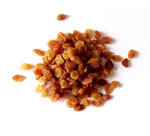Does directly observed therapy (DOT) reduce drug resistant tuberculosis?
Posted by: admin on: June 1, 2011
Background
Directly observed therapy (DOT) is a widely recommended and promoted strategy to manage tuberculosis (TB), however, there is still disagreement about the role of DOT in TB control and the impact it has on reducing the acquisition and transmission of drug resistant TB.
This study compares the portion of drug resistant genotype clusters, representing recent transmission, within and between communities implementing programs differing only in their directly observed therapy (DOT) practices.
Methods
Genotype clusters were defined as 2 or more patient members with matching IS6110 restriction fragment length polymorphism (RFLP) and spoligotype patterns from all culture-positive tuberculosis cases diagnosed between January 1, 1995 and December 31, 2001. Logistic regression was used to compute maximum-likelihood estimates of odds ratios (ORs) and 95% confidence intervals (CIs) comparing cluster members with and without drug resistant isolates. In the universal DOT county, all patients received doses under direct observation of health department staff; whereas in selective DOT county, the majority of received patients doses under direct observation of health department staff, while some were able to self-administer doses.
Results
Isolates from 1,706 persons collected during 1,721 episodes of tuberculosis were genotyped. Cluster members from the selective DOT county were more than twice as likely than cluster members from the universal DOT county to have at least one isolate resistant to isoniazid, rifampin, and/or ethambutol (OR = 2.3, 95% CI: 1.7, 3.1). Selective DOT county isolates were nearly 5 times more likely than universal DOT county isolates to belong to clusters with at least 2 resistant isolates having identical resistance patterns (OR = 4.7, 95% CI: 2.9, 7.6).
Conclusions
Universal DOT for tuberculosis is associated with a decrease in the acquisition and transmission of resistant tuberculosis.
Read more: http://www.biomedcentral.com/1471-2458/11/19
Search
- drchasrani: Difficult to get such a data, authenticated at that. Try Times of India online library
- rakesh pore: hi, where can i get genuine information about "10 most common drugs sold in india?" i want it for a local project
- nilesh dutta: sir, Plz give detail about MBA Sports Management Thanks and Regards


Leave a Reply